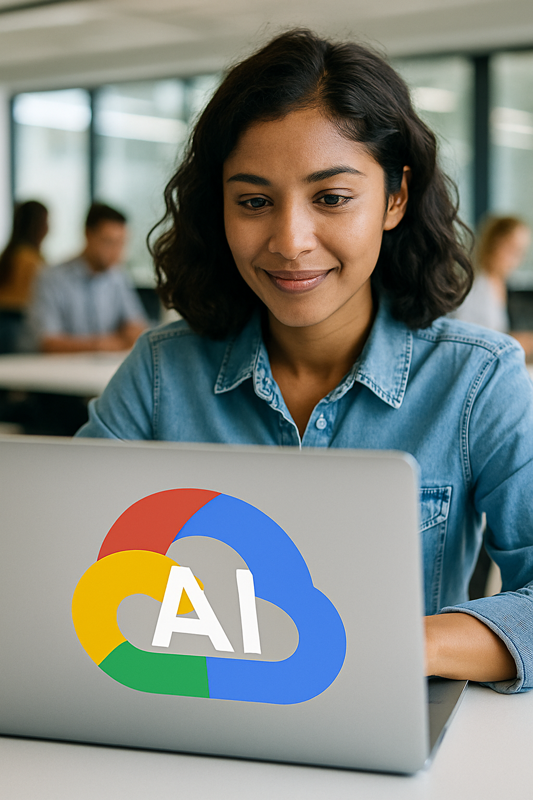Google released a new study revealing that a massive 90% of tech industry professionals now use artificial intelligence (AI) tools as part of their daily work. The sharp increase is a 14% jump compared to last year. AI is deeply integrated into modern software development.
The findings reveal a sweeping transformation in how engineers and developers approach coding, debugging, and documentation. While AI brings incredible opportunities, it also questions trust, quality, and the future of tech jobs.
What’s Happening & Why This Matters
AI Becomes Core to Software Development
The report, conducted by Google’s ORA research division, surveyed 5,000 technology professionals worldwide. It found that AI tools are now standard practice across nearly every stage of software creation, from writing code to testing and deployment. According to Ryan J. Salva, who oversees Google’s coding tools like Gemini Code Assist, the change is total:
“If you are an engineer at Google, it is unavoidable that you will be using AI as part of your daily work.”
Google is pushing transformation with AI tools that range from free versions to premium subscriptions costing up to $45/month. These tools help generate code, troubleshoot across systems, and even manage software development tasks autonomously.
Competitive AI Market Heats Up
The rapid growth in adoption has created fierce competition. Google faces challenges from rivals like Microsoft, OpenAI, and Anthropic, as well as fast-rising startups such as Replit and Anysphere. These companies are attracting sizable investment as innovators and smaller firms rush to adopt AI-powered coding solutions.

Competition is driving innovation but also intensifying pressure on entry-level workers. Job listings for software engineering positions have plummeted by 71% between February 2022 and August 2025, according to Indeed. Meanwhile, the unemployment rate for recent computer science graduates has now surpassed that in traditionally less tech-focused fields, such as art history and English.
The Trust Challenge: AI-Generated Code

While adoption is high, trust in AI-generated output remains mixed. The survey found that:
- 46% of tech professionals “somewhat trust” AI code.
- 23% trust it “a little.”
- Only 20% fully trust it.
In terms of performance, 31% said AI slightly improved code quality, while 30% reported no impact at all. These result shows that while AI is assisting as a standard tool, it still needs close human oversight.
Salva describes AI development tools as situated between stages three and four on a five-level scale. Level one represents basic text prediction, while level five would mean AI can fully execute vague commands with minimal human intervention. Current AI is powerful but still requires careful review and robust safety checks.
Impact on New Graduates and Entry-Level Jobs
The rise of AI is reimagining opportunities for new developers. Recent graduates, like Julio Rodriguez, shared how difficult securing these once lucrative, coveted roles is becoming:
“I applied to more than 150 jobs before finally landing one,” said Rodriguez.
Despite these bumps, many graduates remain optimistic. AI streamlines repetitive work rather than entirely replacing human developers. However, they acknowledge that career paths in tech are changing rapidly.
The Buzz Factor
Part of AI’s meteoric rise comes from hype and excitement. Salva compares software development to the fashion industry, where everyone wants to try the latest trends:
“Software development is a fashion industry… We’re all chasing the next style of jeans. And when there’s that much conversation about it, everyone’s just excited to try the new thing.”
TF Summary: What’s Next
AI’s integration into the tech industry shows no signs of slowing. Companies like Google are building ecosystems where AI becomes a default tool rather than an optional add-on. The challenge now lies in balancing automation with trust, training, and career growth for human developers.
MY FORECAST: AI will dominate software development workflows, with trust issues gradually improving as quality increases. However, competition for entry-level jobs will remain intense, forcing new graduates to diversify their skills beyond traditional coding.
— Text-to-Speech (TTS) provided by gspeech


